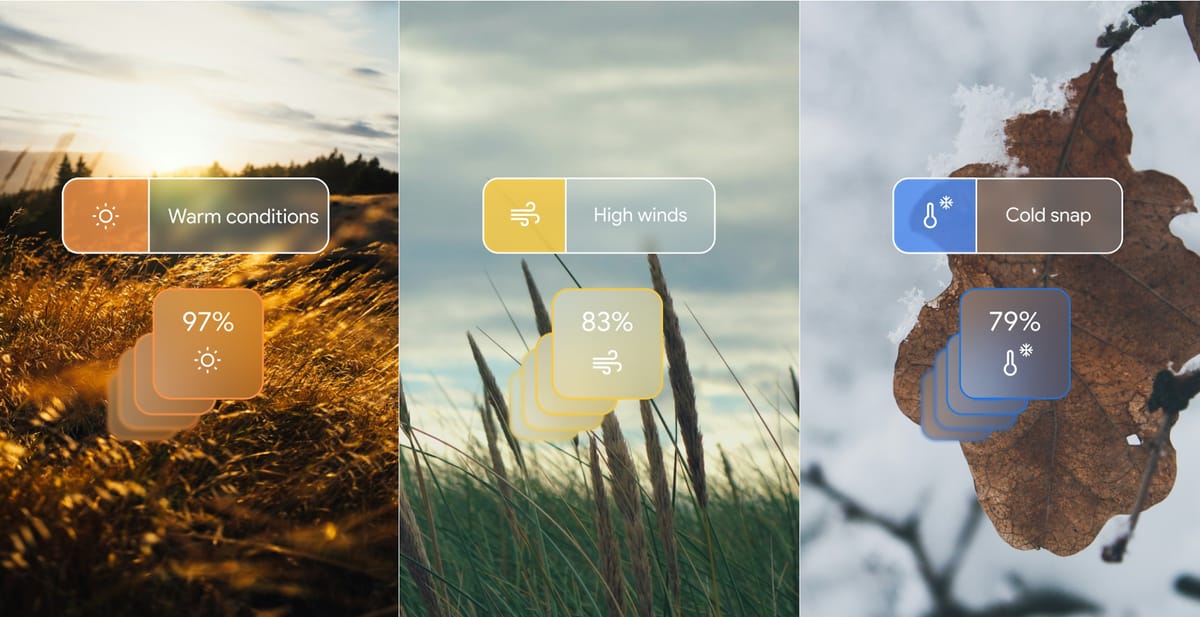
Google DeepMind's new high-resolution AI model, GenCast, delivers faster, more accurate weather predictions than traditional methods. It is clear that AI will fundamentally change how we plan for everyday weather and extreme events.
Key Points:
- GenCast is a high-resolution (0.25°) AI ensemble model that improves weather and extreme event forecasting compared to ECMWF's ENS.
- The model uses a probabilistic approach to predict a range of weather scenarios, enabling more reliable forecasts up to 15 days in advance.
- Google DeepMind will release GenCast's code, weights, and forecasts to support the global weather forecasting community.
Why It Matters: Weather affects everything—from daily routines to critical sectors like agriculture and renewable energy. Google DeepMind’s GenCast offers more reliable weather forecasts, faster. Unlike traditional methods that rely on supercomputers and take hours, GenCast runs on a single TPU chip in just eight minutes, predicting a wide range of possible outcomes rather than a single scenario.
How It Works: GenCast represents a major leap in machine learning weather prediction. Unlike DeepMind’s previous deterministic model, GraphCast, which aimed to provide a best-guess estimate, GenCast uses a probabilistic ensemble, running fifty or more simulations to illustrate the range of possible weather conditions. This approach is particularly valuable in extreme weather situations—like heatwaves, cold spells, and tropical cyclones.
In testing, GenCast outperformed the widely-used ECMWF ENS on 97.2% of the 1,320 forecasting scenarios tested. For long-range forecasts (over 36 hours), it performed better on 99.8% of tests, providing crucial improvements in accuracy, especially in predicting tropical cyclone paths.
The Bigger Picture: Beyond weather predictions, GenCast’s innovations hold significant promise for renewable energy planning, such as more accurate wind power forecasts. This helps stabilize renewable energy supply, making it a more dependable part of our energy mix. Google DeepMind has also decided to open source GenCast, and plans to release the model code, weights, and forecasts.
What’s Next: GenCast sets a new benchmark in weather prediction, and Google DeepMind’s open-source approach could accelerate innovations across the global forecasting community. As extreme weather events become more frequent due to climate change, tools like GenCast could play an increasingly crucial role in helping communities prepare for and respond to weather-related challenges.

